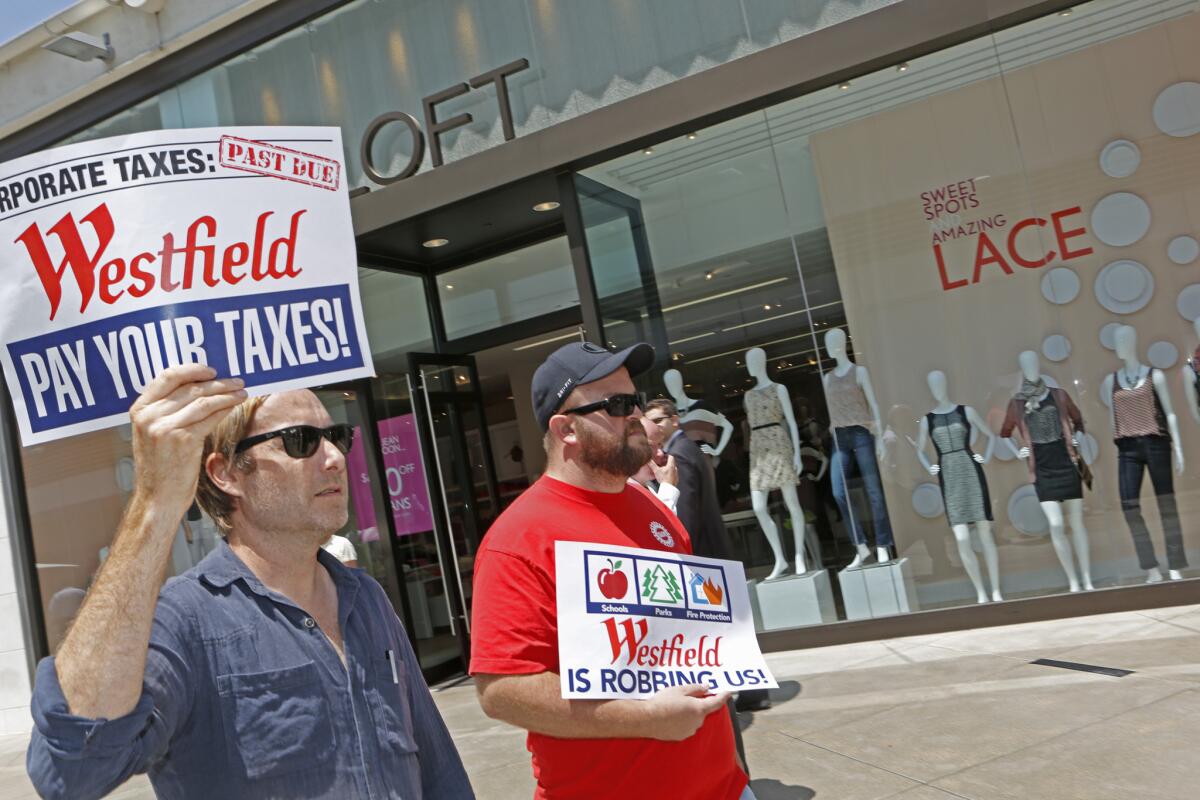Two Assembly Democrats announce plan to close Proposition 13 loophole

- Share via
Reporting from Sacramento — An unlikely duo of Democratic Assembly members -- one a business-friendly moderate, the other a stalwart of the far left -- will unveil a proposal Tuesday to close one of most notorious, and legal, tax loopholes associated with Proposition 13.
And they’ve got an uncommon list of supporters, including the California Chamber of Commerce and other business groups that have staunchly defended Proposition 13, the 1978 California ballot initiative, and some of the tax law’s fiercest critics.
Assembly members Tom Ammiano of San Francisco and Raul Bocanegra of Pacoima will introduce the proposal -- amending a bill already offered by Ammiano -- in the Tuesday afternoon hearing of the Assembly’s Revenue and Taxation committee, which Bocanegra chairs.
“This historic agreement will help to create a level playing field in California,” said Bocanegra (D-Pacoima) in a statement. “A fair and equitable reassessment system will benefit businesses and help to generate additional revenue for state and local government.”
The plan seeks to clamp down on businesses that, when purchasing a commercial property, carve up ownership shares to ensure that no one has a majority ownership stake. That avoids triggering a reassessment that can lead to property tax hikes.
The most high-profile example of this maneuver was the 2006 sale of Santa Monica’s Fairmont Miramar Hotel to computer magnate Michael Dell, who divvied ownership shares among his wife and two business partners, with no one taking on more than 49% of the property.
The move saved him about $1 million a year in property taxes.
Under Ammiano and Bocanegra’s proposal, a commercial property would be reassessed and taxed on its full market value when 90% or more of the property is sold or transferred over a three-year period.
Unlike current law, no one party would need to acquire 50% of the ownership interest to trigger a reassessment.
The measure would require two-thirds vote to pass. But because it deals with legislation relating to Proposition 13 -- and not the initiative itself -- it would not require a change in the state constitution and therefore would not need to be approved by voters.
Ammiano, who has long sought changes to the property tax system, said in a statement that modifying change of ownership rules “has been a goal of progressives for years because the loophole shifted the property tax burden onto the backs of homeowners and other individuals.”
“We have never tried to target the businesses that are small property owners,” he continued. “This loophole is unfair to them too. Now, thanks to Mr. Bocanegra, businesses are joining this effort to bring some fairness back to the tax system in a way that will benefit all Californians.”
One such group bestowing business interests’ blessing to the plan is the California Chamber of Commerce.
“When real property truly has a change of ownership, it should be reassessed in accordance with Prop 13 and these amendments will bring clarity and certainty to commercial real estate transactions and ensure compliance with Prop 13,” Allan Zaremberg, president and chief executive of the chamber, said in a statement.
Also on board is Lenny Goldberg, who, as leader of the California Tax Reform Assn., has often clashed with business groups in his call for changes to Proposition 13.
The bill, AB 2372, “deals with the most egregious loophole,” Goldberg said, adding it was the “first of many battles” he planned to wage on the property tax system.
Still, Goldberg said, this first detente is a marked change from the last several decades, in which he characterized business groups’ position as “‘we cannot have a discussion. There is nothing to discuss.”
“I think they finally understood that it wasn’t just me yelling into the wind, but that there’s really a growing movement for change,” he said.
More to Read
Sign up for Essential California
The most important California stories and recommendations in your inbox every morning.
You may occasionally receive promotional content from the Los Angeles Times.











